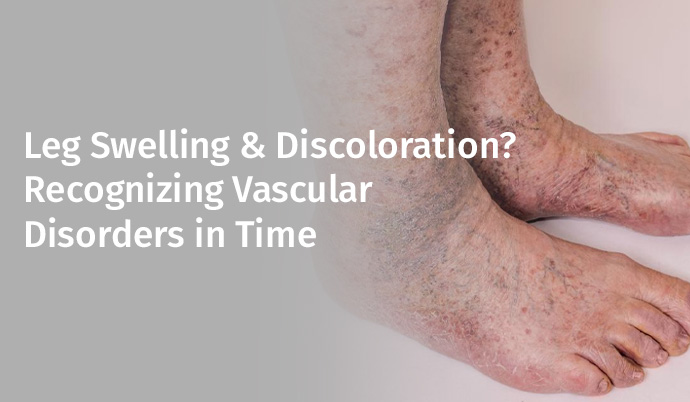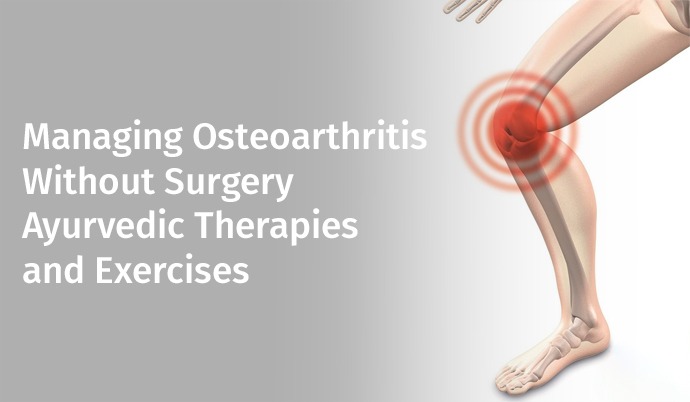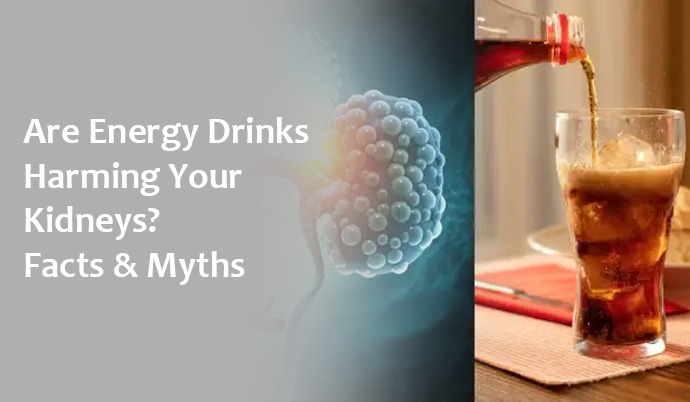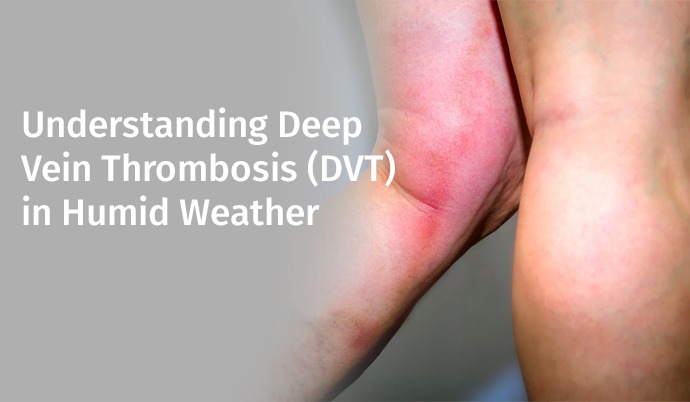
But these innocent-looking symptoms might possibly possess precautionary indications of deeper signs of vascular disorders or conditions afflicting the body system of veins and arteries. With an increase in the rate of diabetes, hypertension, and sedentary lifestyles in the country, now more than ever, it is crucial to create awareness and ensure that these red flags of vascular disease symptoms are caught at an early stage.
The vascular system is like a network of freeways, and is composed of several highways consisting of the arteries that transport oxygen-rich blood throughout your vascular system to the body, and the veins that transport the blood back to the heart. The disturbances or obstruction in this circulation may cause signs of vascular disorders. The most widespread ones are:
Such conditions may lead to eye-catching vascular disease symptoms like swelling of the legs (also known as Edema), darkening of the skin or even swelling out (discoloration) of the skin, pain, heaviness and even ulcers. The problem that begins as a cosmetic issue or a little inconvenience can easily develop into a life-threatening one when not treated with care.
Reasons Why You Cannot Ignore Leg Swelling and Discolouration of the Skin
An Indian family is pretty hectic, and an attack of swelling legs is attributed to standing, spicy food or even the weather. However, the catch is that constant swelling that is aggravated towards the end of the day may signify that the veins are not pumping blood
effectively. This is more so the case when associated with brownish discolourations of the skin around the ankle or lower leg. It is usually caused by a lack of good circulation of blood, pooling of blood and leaking into the tissues, leading to skin darkening. This, in the long term, causes the deposits of iron, and the skin becomes darker and may develop to be dry, itchy, and scaly. In case ulcers start developing, that is, a loud scream of your body that you require the vascular intervention at once. These are clear signs of vascular disorders.
Common Vascular Conditions
1. Chronic Venous Insufficiency (CVI)
This is where the valves in your veins get weak or even damaged so that the process of pumping blood back to the heart is IMPOSSIBLE! It leads to the pooling of blood, swelling of legs, discolouration, and skin ulcers at later stages. It is prevalent, particularly among individuals in a posture of sitting or standing around for long like teachers, shopkeepers, and office workers. It’s among the most overlooked vascular disease symptoms.
2. Varicose Veins
Do you know those twisted veins that bulge on some legs? They are not cosmetic. Varicose veins may result in pain in the form of aches, burning, and throbbing and can cause chronic swelling and pigmentation. The culture in India also makes women more likely to overlook this condition, since it is considered taboo to show legs or to talk about changes to the body. But these are not just aesthetic; these are signs of vascular disorders.
3. Pulmonary Hypertension Deep Vein Thrombosis (DVT)
DVT is an emergency ailment. It arises when there is a clotting of blood in the deep vein, and this is often in the leg. It may result in the sudden suffusion, temperature, and bluish skin colour. When the clot detaches itself and finds its way to the lungs, it may trigger a pulmonary embolism, a condition that is dangerous to life. Prompt attention to such vascular disease symptoms can be lifesaving.
4. Lymphedema
The condition is also easily misconstrued as plain old water retention, but lymphedema is a long-lasting swelling that could be caused by obstruction of the lymphatic system. It leaves legs feeling tight and heavy, and skin thickened and darker. It is frequent following surgeries, infections or in those with cancer and being treated by radiation. These are often brushed off but are among the earliest signs of vascular disorders.
What Puts You at Risk?
The combination of genetics, lifestyle and cultural practices results in the blueprint that provides an ideal environment in India to constitute vascular diseases. The following are some of the significant risk factors:
All these factors contribute to leg swelling treatment and causes.
When to See a Specialist?
Do not dismiss it just because you have been experiencing some unexplained swelling in the legs, or any skin changes or persistent pain. Determining the condition may be conducted by a vascular surgeon or a specialised expert with the help of such tools as:
Not only does early diagnosis eliminate the symptom, but early detection can also help avoid complications such as non-healing wounds, skin infections or possible amputation in extreme, irrespective cases. Recognising these vascular disease symptoms early makes a world of difference.
For vascular treatment in India, more vascular centres and specialists are growing, especially in the big cities, such as Delhi, Mumbai, and Bengaluru. The line of treatment depends on the case and the severity thereof and may entail:
There is also an increased indication of Ayurvedic and Naturopathic treatments to treat the initial stages of the disease, although this must be in liaison with the medics. All these are considered part of comprehensive leg swelling treatment and causes plans.
Prevention Is Better Than Cure (And Discolouration! )
Your leg swelling treatment and causes prevention checklist must include:
These lifestyle changes target both vascular disease symptoms and long-term leg swelling treatment and causes.
Swelling of legs and the discolouration of the skin are not the only signs of vascular disorders or post-working-day exhaustion; they are the red flags of your body. As cases of vascular disease symptoms are on the increase in India, it is important to be kept updated and take precautionary measures from the tip of your toes to your ticker. We have all experienced the temptation of googling our leg swelling treatment and causes after we start to feel our legs getting numb or the skin around our collarbone turns pale, but go in next time because that is what doctors are there to do. And for that steps and consult at the appropriate time. It has to be healthy veins, after all, healthy you, dot, proper diagnosis and treatment book an appointment at Sir Ganga Ram Hospital, the Best Endovascular Surgery Hospital in Delhi, India, today.




